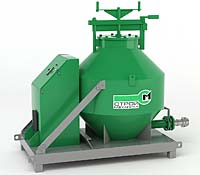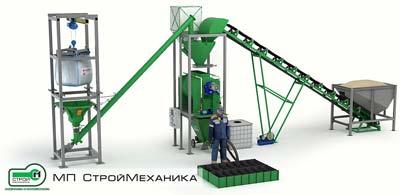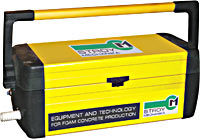 |
  |
StroyMechanika LTD |
||||||||||||
 |
|
|||||||||||||
| UniPell | Links | |||||||||||||
|
Setting accelerator (granulated calcium chloride) UniPell™Setting accelerator (granulated calcium chloride) UniPell™ is used in the production of foam concrete, polystyrene concrete, concrete, wall ь masonry units, paving tiles and others. The "headache" in the production of concrete articles (gas concrete and foam concrete) are molds, where the cement mortar is hardened and set. The mortar should be in molds for a long time at definite temperature and moisture to get enough (normal) strength. The problems are arisen at temperature pull down, when the time of molds "downtime" increases in several times. It is required to decrease cement consumption without strength losses to low prime cost of products. Thus, nowadays they say that the application of new product UniPell™ are more profitable economically and technologically on the Russian market. UniPell™ are granules of calcium chloride with 94-98% of base substance and minimal admixtures content that is the guarantee against shrinkage of foam concrete, polystyrene concrete and concrete products and leaching on them. Chemical properties
Application of UniPell™ allows:
Influence of the agent UniPell™ on concrete strength
1 - % from cement weight in concrete
Concrete strength growth in в % at different setting temperatures and agent 2% UniPell™
Based on various tests of acceleration of concrete setting made in laboratories the data presented in tables are average parameters drawn by the research institute of reinforce concrete. The kinetics of strength growth was set on concretes made from mixes with slump flowability of 6-8 cm.
|
|
|||||||||||||||||||||||||||||||||||||||||||||||||||||||||||||||||||||||||||||||||||||||||||||||||||||||||||||||||||||||||||||||||||||||||||||||||||||||||||||||||||||||||||||||||||||||||||||
| © 2004-2009 "Stroymachanika" LTD | Catalogue Dealers About us News Contacts Site map |












